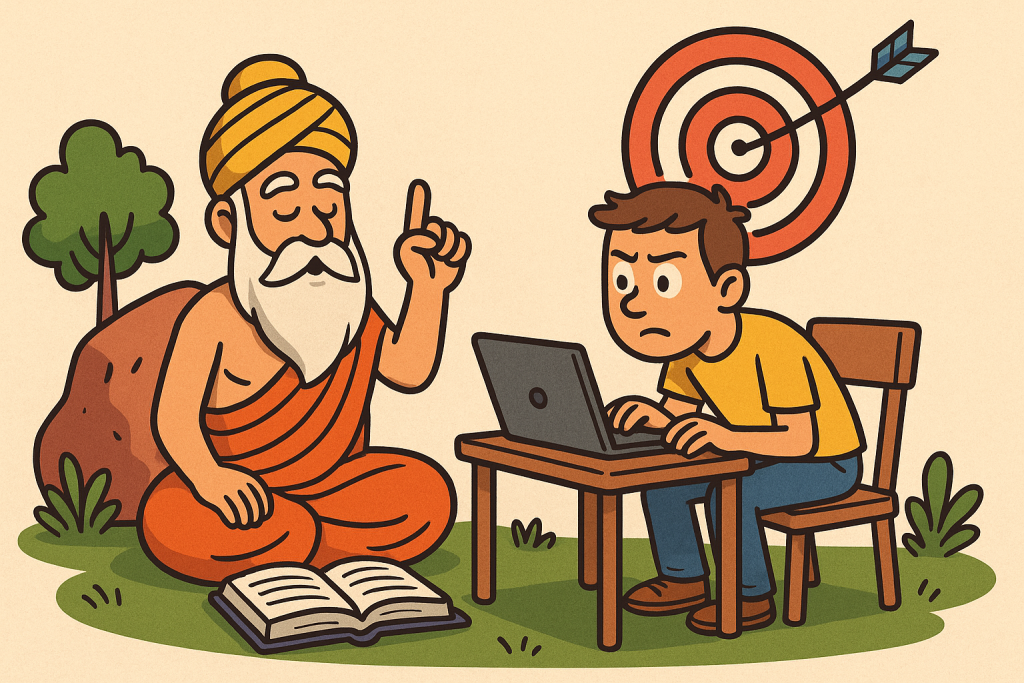In our hyper-connected world, reclaiming attention is urgent. What Ancient Wisdom Can Teach Us About Focus draws on Stoicism, Zen, Tai Chi, and neuroscience-backed practices to help sharpen your mind, reduce distraction, and thrive in today’s fast-paced digital age.

Why Ancient Focus Trends Matter Today
Modern seekers turn to ancient methods not out of nostalgia—but because mindfulness, discipline, and embodied presence are trending in wellness, productivity, and tech. From corporate retreats using Tai Chi to brain-computer interface startups like Zen Focus Neuro, the trend is clear: old-school wisdom is meeting modern demand.
1. Stoicism: Prioritize Inner Control
What is the dichotomy of control?
Epictetus taught that focusing on what’s within our control eliminates wasted energy. This concept underpins modern reactions to stress and distraction .
Practical Stoic steps to sharpen focus:
- Categorize tasks: List what you control—your effort, attention, mindset—and ignore the rest.
- Practice “do less, better”: Adopt Marcus Aurelius’s advice to focus only on the essential 2–3 tasks every day.
- Daily reflection: End days with a quick review—“What did I control? How well did I focus?”—to reinforce progress.
2. Zen & Mindfulness: Train the Attention Muscle
Zen meditation improves attention span
Neuroscience shows that regular Zazen (open-monitoring meditation) thickens prefrontal cortex and enhances the ability to return to a point of focus after distractions.
Try this Zen-based routine:
- 10 minutes/day of breath-focused sitting or walking meditation.
- Use an app or timer to track consistency.
- Notice how quickly your mind returns to the breath—it’s measurable growth.
3. Flow Through A Mind–Body Connection: Tai Chi & Movement
Ancient movement supports modern focus
Tai Chi, integrated into “flow state” frameworks, emphasizes mind–body awareness—focusing on posture, breathing, and awareness to enter deep work states.
Simple Tai Chi-inspired work break:
- Pause every 90 minutes.
- Perform 2–3 minutes of slow, deliberate breaths and upper-body rolls.
- Return with a clearer, more energetic mindset.
4. Meditation Meets Modern Neuroscience
Brain changes from ancient habits
fMRI and EEG studies show that focused meditation grows cortical thickness, strengthens executive control, reduces default-mode mind-wandering, and enhances emotional regulation .
Real-world effect:
Mindfulness consistently beats placebo and even pain medication proxies, reducing pain by 21–24% independently of opioids.
5. Build Neural Discipline: The 21-Day Transformation
Studies highlight that 21 days of consistent practice forms new neural pathways, making innovations like meditation, Tai Chi, or Stoic journaling feel automatic.
21-day implementation plan:
- Select one practice (Zazen, Tai Chi, or Stoic journaling).
- Do it daily for 10–20 minutes.
- Log your session and rate your focus (1–10) afterward.
Putting It All Together: A Focus-Boosting Framework
| Step | Practice | Focus Benefit |
|---|---|---|
| Morning | 5 min Stoic journaling | Clarify priorities, activate focus |
| Work block | 90 min deep work + 2–3 min Tai Chi | Focus + body reset |
| Lunchtime | 10 min Zazen meditation | Mind reboot, stress reduction |
| Evening | 5 min reflection | Reinforce habits, refine next day plan |
Emerging Trend: BCI Meets Ancient Meditation
Companies like Zen Focus Neuro pair EEG-driven feedback with meditation to amplify focus training. This illustrates how ancient wisdom is converging with tech for personalized cognitive enhancement.
Final Take
The focus keyphrase, What Ancient Wisdom Can Teach Us About Focus, comes alive through Stoic clarity, Zen-derived attention control, Tai Chi embodiment, and neuroscience-proof validation. These aren’t just trends—they’re practical tools for modern life that work if practiced consistently.
Sources
Ryan, W. (2020) The art of attention: Mindfulness and the early philosophers. Available at: https://www.psychologytoday.com (Accessed: 17 June 2025).
Slingerland, E. (2016) Trying not to try: Ancient China, modern science, and the power of spontaneity. New York: Crown Publishing Group.
Hadot, P. (1995) Philosophy as a way of life: Spiritual exercises from Socrates to Foucault. Oxford: Blackwell Publishing.






